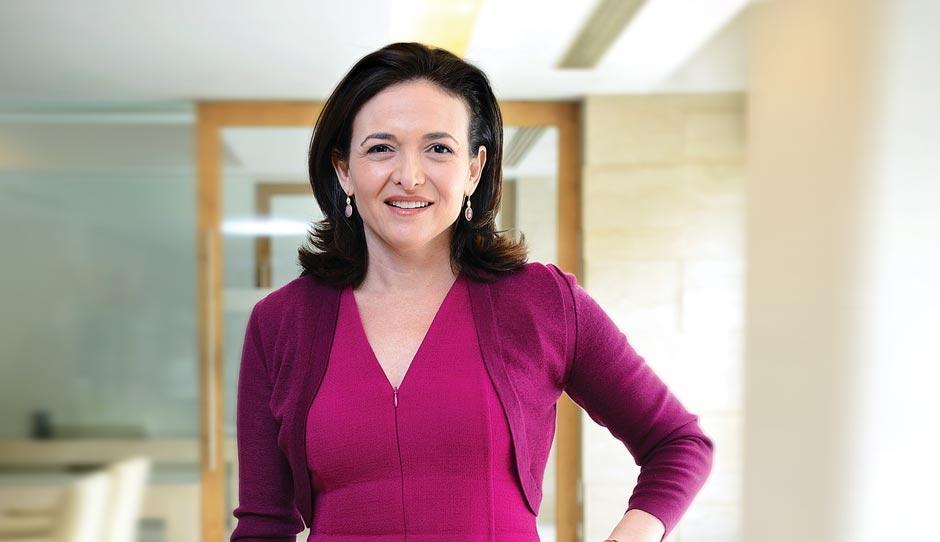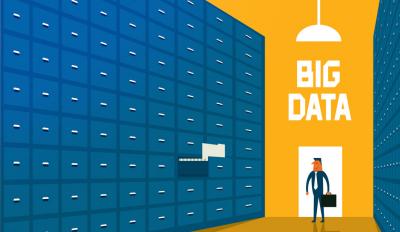When Sheryl Sandberg Met Indian SMBs
- BY Shreyasi Singh
 In Technology
In Technology 8187
8187 0
0

On her recent visit to India, the first stop on Facebook COO Sheryl Sandberg’s itinerary was her meeting with the founders of nearly a dozen small and mid-sized businesses at the company’s Hyderabad office, one of its four largest across the world. In a visit that stood out in the mainstream media for her much-talked about meeting with Prime Minister Narendra Modi, the Hyderabad meeting, Facebook India says, demonstrates the company’s focus on SMBs. In fact, Sandberg announced that already 9,00,000 small and medium-sized businesses in India have Facebook accounts, and use the platform as a key marketing tool. MYB’s Shreyasi Singh caught up with her in Hyderabad for an interview. Listen in.

Tell us why Indian SMBs present a great opportunity for Facebook. And, how are Indian SMBs unique, or their challenges different, from SMBs in other developed and emerging economies?
Sheryl Sandberg: First, India is very exciting for us because it has the largest percentage of people who have the fastest growing internet connectivity in APEC. Let’s go through that. Facebook has more than 100 million users in India, the only other country which has done it is the US and we started in the US very early on. I can’t think of any other better reason to be of higher priority for us. Plus, because I have worked here for a very long time when I started my career, I know Indian people are entrepreneurial, dedicated and passionate. I always look at the stories of people using Facebook when I am coming to the country. My folder of India has so many amazing stories such as two brothers who used our platform to get support to build a road for the first time. There are countless other stories of small businesses using Facebook to grow.
Everywhere in the world, SMBs are critical to a country. They drive the economy. In fact, I can’t think of any country that I have been to where SMBs are not driving growth more than any other sector. I see India’s numbers, and the SMB growth is so strong compared to other sectors. We are so delighted that 9,00,000 SMBs use Facebook. India is obviously not just the world’s largest democracy but in many ways has the potential to be one of world’s largest economies. If you look at the economic growth, particularly recently, jobs are a very hard situation all over the world from the United States to all the developing markets. The issue of jobs concerns everyone. Certainly in the US and most of the countries I have visited, SMBs and entrepreneurship is usually the answer to more jobs. The answer is individuals taking actions to create businesses to employ other people. Facebook empowers people to do that—create businesses and opportunities.
In your experience, how do SMBs use Facebook differently from the larger companies? Q Facebook has received a lot of criticism recently about the lack of organic reach. More and more, people say it is becoming a “pay to play” platform. In fact, I asked several SMB founders about the one question they would like me to ask you, and this is that question. What is your response to people who question the ROI of a Facebook campaign?
SS: It is definitely true that organic reach has gone down but not just for businesses, for everyone. When I joined Facebook, there were only 30-40 million users, and people didn’t have as many friends. Now, we have 2.8 billion users, and people have many more friends. More people are connecting to small businesses and so it is more crowded. We hope we will continue to get more crowded because that means more people are using the platform. And, it is our desire and responsibility to help you show-and-tell what you want to say. But, it is not physically possible for everything in there to show so we have to sort. See, decreasing organic reach is a common pattern. If you were the first ad on TV, you will probably not be the only ad; all of a sudden there will be more ads. But it doesn’t mean that it doesn’t work and I think you will hear from the small businesses here that we need to get past just posting. We need people to interact, to engage. So, the higher the quality of the posts, the higher customer distribution the person gets and that is a great ecosystem and great incentive to have better conversations on Facebook.
 "Women traditionally have had less access to technology, less access to thinking, less access across the board and I think changing those realities is really important."
"Women traditionally have had less access to technology, less access to thinking, less access across the board and I think changing those realities is really important." SS: I think one of the great strengths of our product is that we are the same product whether you are Prime Minister Modi, President Obama or a university student. We can all post status updates, share pictures, and connect with people. If you look at the products we offer for small businesses and large businesses, it is essentially the same product. Now, obviously if you are running large campaigns there are tools you need and so we work hard to build these tools but if you think about the bulk of our servings, they are mostly individuals and small businesses. We have 30 million small businesses active on Facebook on a monthly basis globally, and 9,00,000 active in India. We have over a million advertisers. A lot of our developments last year have actually been to make the product simpler. Anybody who advertises wants to watch their campaign, and compare and contrast it. In fact, a lot of our growth in SMB usage has come from the fact that we made it easier to operate on our page. Look at the video tab on our page. It’s actually really easy to operate a video on Facebook. Look at how we have got a lot of our SMBs to become advertisers from just having pages. Today, we get a post and we say, do you want to promote that post? It takes $5 per post in the US, and much less in rupee terms here. It’s that easy to do. In our development plan, and in earnings calls I have every quarter, I constantly talk about simplifying our products for SMBs. This is critical for us to do.
You’re a great advocate for women and work. I’d like you to talk about that in the context of Facebook. Pew Research found in a report last year that 76 per cent women in the US use Facebook and when they use it, they do so for longer than men, and also more often. Do you think the trend Pew highlighted has led women based businesses to flourish more? And, is that something Facebook tracks?
SS: I think anytime traditional structures break down and more access is gained, it is easier, cheaper and faster for women to start something. In every country, mine as well as yours, women don’t have as much access to capital and they don’t run as many businesses. When these structures break down, women have more access and I think that is great. I think majority of the small businesses in the US are started by women and being able to start a business more cheaply is really important. We find a lot of women using Facebook and I am sure that is true all over the world when they have both family and work responsibilities, it is very flexible in terms of managing your time and place. So, these technologies are very important for all economies, and for us women.
When you think about economic empowerment anywhere in the world you can’t help but think about women. In the United States, women get less pay than men for the same job. In India, women get paid less for the same job. This is true mostly all over the world. Women traditionally have had less access to technology, less access to thinking, less access across the board and I think changing those realities is really important.
Do you think there is an opportunity for brands, both mid-sized and small, to use the fact that platforms like yours enable them to deepen their engagement with, and have better conversations with and about women?
SS: People are increasingly understanding that women’s purchasing power is rising. It’s important to recognise that so many of the purchasing decisions are made by women. Women are the main consumers so marketing to women powerfully is really important. I was recently in France for this seminar on global advertising. I was one of the sponsors. One of the panels I did there was on marketing to women and I showed them a bunch of examples of people marketing to women in a better way. There was a great example from India about a marketing campaign where the ad showed the husband standing up to his parents about his wife’s desire to work. To market to women in ways strong and powerful, companies should understand women are important consumers
.





























Add new comment